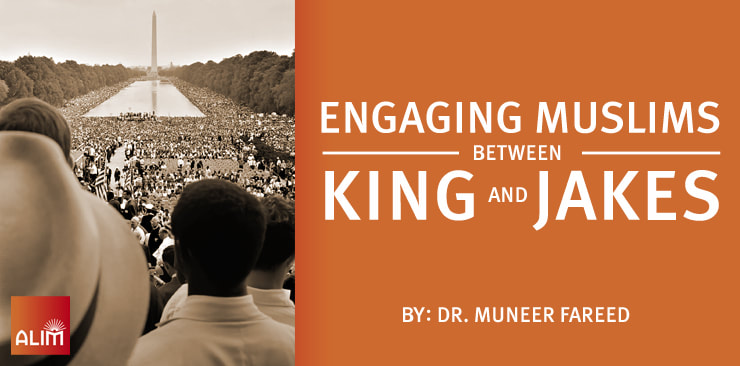|
The Black community in America is now led by what some call the post-civil rights generation. These heirs to America’s newest cultural ideal, the diversity movement, graduate in significant numbers from America’s elite colleges and universities and occupy plum jobs in industry and the civil service. College admission policies together with corporate recruitment policies are increasingly driven by the quest for diversity, by which is meant, not the mere assortment of persons who together represent humanity’s cultural variety or ethno-racial multiplicity, but rather a quantitative array of human beings who fit certain racial and ethnic profiles. The beneficiaries of this new political dispensation readily acknowledge the debt they owe the pioneers of the civil rights movements within the Black community. But they also recognize a shift in attitude throughout America that slowly erases racial, religious, and regional biases. This brings me to the two faces of the Black Muslim community itself that confound outsider efforts to engage the community more meaningfully.
On the one hand we have Dr. King’s Social Gospel, and in particular, his struggle to serve the poor and empower the Black community at large, and on the other, we have the Rev. T.D. Jakes’ preaching of the so called health and wealth gospel. Dr. King’s leadership was a combination of the religious emotionalism of the Deep South and the intellectual abstractions of the liberal White East Coast. In time he was able to disabuse himself of both: the former through self-criticism, and the latter through Reinhold Niebuhr and others, who helped him recognize the false ideals of Liberalism, and in particular, it’s inability to distinguish between the complexities “of man’s social involvement and the glaring reality of collective evil”. As for T.D. Jakes, whom Time magazine once considered a likely successor to Billy Graham, he too underwent his own transition from Pentecostal Modalism back to mainstream Trinitarianism. Russell D. Moore, dean of the school of theology at Southern Baptist Theological Seminary in Louisville, Ky. applauded Jakes’ change of heart, but voiced concerns that this may well have been prompted by Jakes wanting to broaden the appeal of his prosperity gospel. “God loves the rich” and “God loves the healthy” has all but replaced the social gospel of Dr. King, not just in Jakes’ mega-church but also at America’s preeminent institutions of learning. Prominent preachers such as Jakes, Kenneth Hagin, and Charles Capps, among others, articulate a faith of prosperity that promises upwardly mobile Black professionals more than just pie in the sky. Jakes with his uncanny grasp of the psychological and cultural traits of a postmodern America has used the appeal of the prosperity gospel not just to rocket himself from rags to riches, but also to change his own community’s long held attitudes towards wealth and prosperity. How then are these two world views different? Traditionally, the message of the church has been personal, and the road to social reform through the individual. Change to society came one soul at a time—original sin, after all, was first and foremost, personal. But Dr. King’s Social Gospel was more social than it was personal, more historical than it was metaphysical, and above all, more ethical, and therefore this worldly than it was doctrinal. Like Walter Rauschenbusch, the preeminent proponent of this theology, King too believed that evil was both personal and social, and that the relationship between communal conscience and material progress was inverse. In other words, as America grew increasingly materialistic so it drew further away from its very own humanity. To determine which end of this social spectrum to interact with and how best to do that career wise, is a skill that seemingly eludes Muslim America’s immigrant minds. Rami Nashashibi’s IMAN has consistently delivered the kinds of service to the inner cities of America that would surely have done Dr. King proud; and personally, he has garnered just the kind of accolades to brighten the Rev. T.D. Jakes’ face! Rami too earned his degree from Chicago, was selected as one of that city’s Top Ten Global Visionaries, and made the list of our very own top 500. Most young Muslims would like to be where Rami presently is, at Brookings, hobnobbing with bin Bayyah, Ihsanoglu, and Khar but without having to go through years of toil in the precincts of West 63rd St., Chicago. Budding social activists in the immigrant community, however, have neither the spiritual mojo nor the social skills needed today to segue King’s Social Gospel into Jake’s Gospel of Prosperity. That’s something worth remembering the next time advice about social engagement in the Black community is doled out; that, and the fact that the Black community itself has yet to come to terms with this fork in their road. Email your comments and questions to [email protected].
0 Comments
Leave a Reply. |
|
stay connected
@alimprogram
PO Box 871785 Canton, MI 48187
(734) 956-0698
(734) 956-0698
2024 © American Learning Institute for Muslims. All rights reserved.
ALIM is a 501(c)(3) organization. All donations are zakat-eligible and tax deductible. Our EIN is 38-3633579.
Zelle: [email protected]
Terms of Service | Privacy Guidelines | Sign Up for ALIM Emails I Get ALIM Text Alerts
ALIM is a 501(c)(3) organization. All donations are zakat-eligible and tax deductible. Our EIN is 38-3633579.
Zelle: [email protected]
Terms of Service | Privacy Guidelines | Sign Up for ALIM Emails I Get ALIM Text Alerts


 RSS Feed
RSS Feed